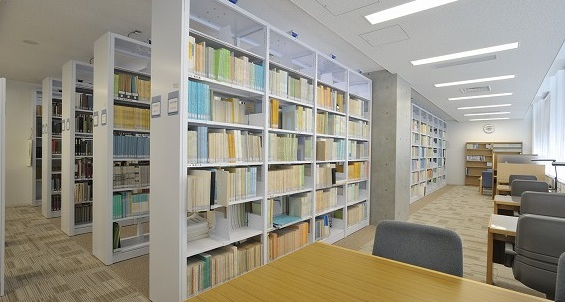大气与海洋研究所(AORI)于2010年由海洋研究所和气候系统研究中心合并而成。该研究所一直致力于支持和管理使用研究船及其他设施的合作科学研究,促进对覆盖地球表面的海洋和大气结构和动力学以及生活在海洋环境中的生物的各种基础研究。研究所在解决人类和生物圈生存的重要问题方面取得进展,例如全球环境波动、生物进化和海洋生物群落的变化。此外,作为日本各地从事海洋和大气科学的学者的共同使用/研究中心,研究所和国际海岸研究中心提供世界上最先进的研究设施和设备,并充分改善研究环境,致力于成为大气和海洋科学的全球领导者。此外,研究所通过推进研究生院教育和各种研究项目,努力培养代表下一代大气和海洋科学家的年轻研究人员。
AORI的教师还参与了大学内科学、农业和生命科学以及前沿科学研究生院的教育。AORI正在九个部门和四个研究中心积极开展海洋和原子层科学研究。AORI的教师与东京大学的研究生院合作,负责学生的教育。为了应对这些长期综合表现的多重问题,充分了解全球环境和海洋生物群落,研究所除了积累基础研究成果外,还根据当前的科学成果制定决策。

The Institute of Atmospheric and Oceanic Research (AORI) was formed in 2010 by the merger of the Institute of Oceanography and the Center for Climate System Research. The Institute has been committed to supporting and managing collaborative scientific research using research vessels and other facilities to promote a variety of basic research into the structure and dynamics of the oceans and atmosphere that cover the Earth's surface and the organisms that live in the Marine environment. The Institute has made progress in addressing important issues of human and biosphere survival, such as global environmental fluctuations, biological evolution, and changes in Marine communities. In addition, as a common use/research center for scholars engaged in Marine and atmospheric sciences throughout Japan, the Institute and the International Center for Coastal Research provide the most advanced research facilities and equipment in the world and adequately improve the research environment, aiming to become a global leader in atmospheric and Marine sciences. In addition, the Institute strives to train young researchers who represent the next generation of atmospheric and Marine scientists by advancing graduate school education and various research projects.
AORI faculty are also involved in the education of the university's internal medicine, agricultural and life sciences, and Frontier Science graduate schools. AORI is actively conducting Marine and atomic layer scientific research in nine departments and four research centres. AORI faculty are responsible for the education of students in collaboration with the graduate School of the University of Tokyo. In order to address these multiple issues that are integrated over the long term and to fully understand the global environment and Marine biomes, in addition to accumulating the results of basic research, the Institute makes decisions based on current scientific findings.